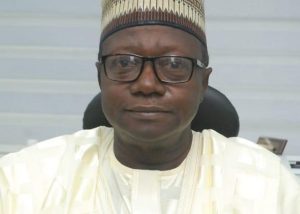The Nigerian Economic Summit Group (NESG) has stressed the importance of conducting National Housing and Population Census in the attainment of the UN Sustainable Development Goals (SDGs).

The group’s Chief Executive Officer (CEO), Dr Tayo Aduloju, stressed the importance in an interview on Saturday, August 3, 2024, in Abuja.
Aduloju said reliable and timely population and demographic data are essential in monitoring SDG progress.
He added that Nigeria’s performance in the 2024 Sustainable Development Report highlights substantial challenges across various SDGs, with an overall score of 54.6, ranking 146th out of 167 countries.
He said: “Key indicators reveal high levels of poverty, undernourishment and child stunting, along with concerning health outcomes, limited education access and gender inequality.
“The SDGs report shows that nearly half the population live in poverty (31.4 per cent below $2.15 per day and 49.0 per cent below $3.65 per day).
“High level of undernourishment (15.9 per cent), stunting in children (31.5 per cent), concerning health outcomes such as maternal mortality ratio of 1,047 per 100,000 live births and a life expectancy of just 52.7 years.
“Education access is limited, with a net primary enrollment rate of 64.4 per cent, and gender equality remains a challenge, with only 3.9 per cent of parliamentary seats held by women.”
The CEO explained that census could potentially provide reliable data for about 90 SDG indicators, either directly or through population projections based on data.
He added that Nigeria’s outdated census data hindered its ability to monitor and achieve goals effectively, impeding overall progress toward sustainable development.
He noted that “another critical aspect to consider is gender and social inclusion. The lack of accurate census data affects efforts to promote gender equality (SDG 5) and social inclusion.
“Understanding population distribution by gender is crucial to addressing gender disparities, and without accurate data, efforts may be misdirected or insufficient.
“The SDGs’ emphasis on ‘leaving no one behind’ and accurate demographic data are essential to ensuring that vulnerable groups such as persons with disabilities, migrants and those living in slums are adequately represented in development plans and policies.
“Without up-to-date data, efforts to achieve inclusive and equitable development are undermined.”
Aduloju, therefore, noted that conducting census is crucial for Nigeria, adding that timely and successful completion of the census would address many challenges.
Nigeria conducted its last census in 2006.
According to the recommendations of the International Conference on Population and Development (ICPD) Programme of Action (PoA), another census should have been conducted in 2016.
In 2023, former President Muhammadu Buhari approved the census to be held from May 3 to May 7, but it was postponed, with the expectation that a new date would be set by President Bola Tinubu.
However, the Chairman of the National Population Commission (NPC), Alhaji Nasir Kwarra, said efforts are ongoing to ensure the census is conducted soon.
Kwarra said the commission is prepared and just waiting for presidential approval to conduct the headcount.
By Folasade Akpan
